Have you ever wondered what the word Senpai means? Have you ever wondered what Kouhai means? What is the relationship between these two Japanese words? You've probably heard some anime character calling another by these names. To answer your question, let's investigate the meaning and relationship between these two words.
The words Senpai and Kouhai are honorifics of treatments based on status and hierarchy. The difference is that these words are often used with affection and appreciation and not as a position or idea that someone is superior to someone else. In theory there is no literal translation, but it can be explained.
We also recommend reading:
- Japanese Honorifics - The Meaning of san, kun, chan and others
- Sensei doesn't just mean Teacher or Master
- Know the Meaning of Waifu and Husbando!
Índice de Conteúdo
The meaning of Senpai
Senpai [先輩] is the equivalent of the Western concept of veteran or tutor. This word is often used to refer to an older and more experienced person, a mentor or senior. It is respectful treatment for older or more experienced people, a parent, graduate, or someone years ahead in school education.
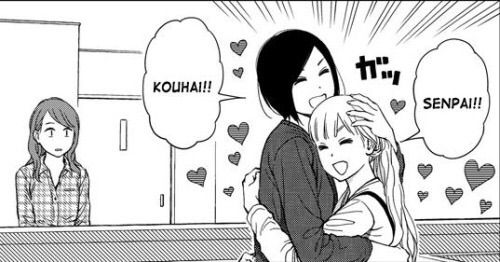
The word SEN-PAI [先-輩] is the junction of the ideogram SEN [先] that passes the idea of future, precedence, head, front, old and first. The ideogram PAI [輩] conveys the idea of comrade, companion and person. Literally a fellow who has more experience than you.
In Japanese, one should never call oneself “senpai”, nor even chase that title as some people chase the title of veteran or scout. Being a “senpai” means being recognized by others, it is an honorific that needs to be earned.
The veterans also do not put their title on business cards as the doctors do in the West, nor do they usually force others to call them senpai. This respect is earned and can only be recognized by others. The senpai treatment is similar to the treatment of sensei (master, teacher), but one level below and you don't need to be teaching anything.
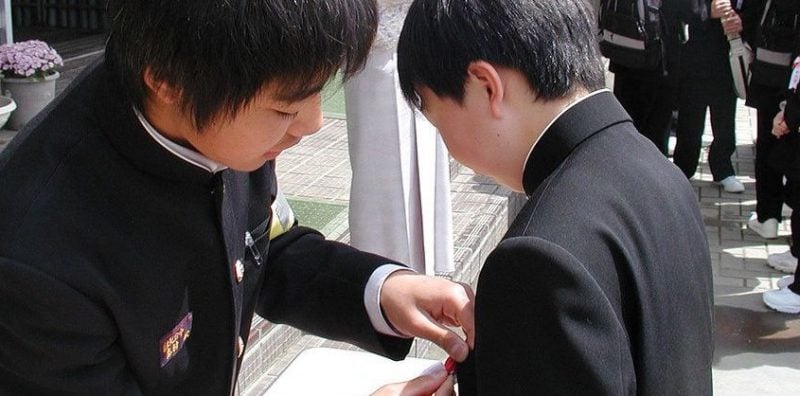
The meaning of Kouhai
Kouhai [後輩] is basically the opposite of senpai, a generic equivalent of freshman in the west. Other meanings and ideas that the word passes are junior and younger people. The ideogram [後] conveys the idea of behind, after, remainder, successor, heir, previous and the like. The word also has the character [輩] but is pronounced HAI.
Simply put, Senpai is used to refer to an older and more experienced person, a mentor or senior. Kouhai is a younger, novice or inexperienced person. Nobody is offended by being called Kouhai, on the contrary, there is a great relationship between the 2.
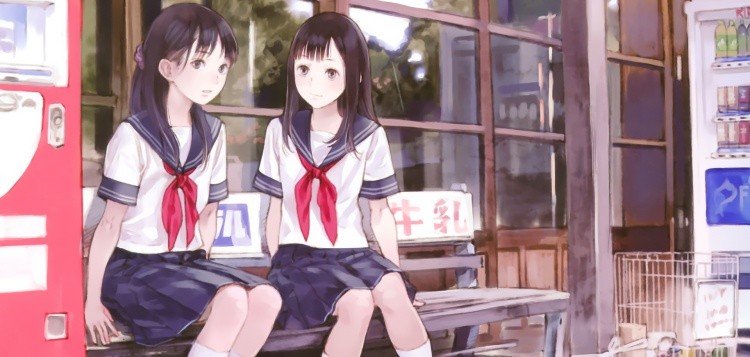
If you've talked to or befriended a senior, you've automatically become a Kouhai and should call him Senpai as a sign of respect. Not using this treatment is like you don't respect him. But not all veterans call their Kouhai by their treatment, but by their name or some nickname.
Senpai Slang - What does Paisen mean?
There is a slang term that closely emulates the position of the ideograms in Senpai. The slang term is Paisen [パイセン] and it means the same thing, senior, superior, older, graduated, or parent. It is worth mentioning that this slang term is more rude and Japanese people, being polite, do not usually use it.
Although Paisen is an informal word, it can be used when he is very close to Senpai, he will not face it in a respectful way, but often affectionate. It's simply a play on the word Senpai, usually used in a cute, fun and casual way, but it's still good to be careful when using it.
Paisen is also a nickname used for comic book masters Katsuya Yano and voice actress Sayuri Yahagi.
The article is still halfway through, but we recommend also reading:
Using the words Senpai and Kouhai
The words in this article are suffixes like [SAN, KUN and CHAN] used after the name and separated by a hyphen in English. The main difference is that the Japanese often use Senpai and Kouhai as a nickname, without the need to mention the name first.
Usually a Senpai addresses a Kouhai with his name or surname followed by the suffix -Kun regardless of gender. Similarly, a Kōhai addresses a Senpai by name with the suffix Senpai or San.
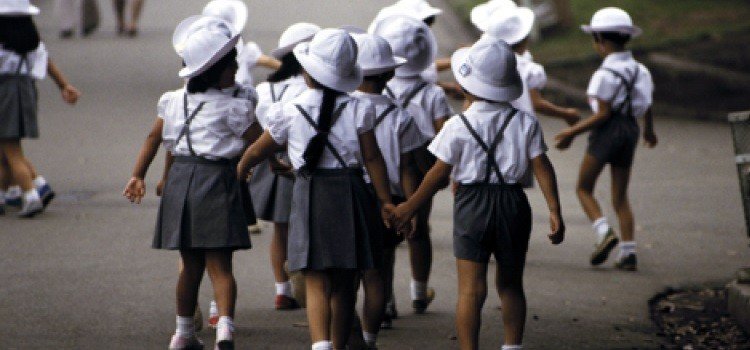
There is usually no age separation between these treatments. Those who arrived at the school in the first year are considered Kōhai of those in the second and third years. There is a great friendship between Kouhai and Senpai, which can continue even after they leave school or organization.
Read also: Are schools in Japan the same as in anime? comparisons
In jobs, a person who is longer than you is considered Senpai, it doesn't matter if he arrived just a day earlier, you will still be Kouhai. The concept is simple, it only becomes complicated when strange circumstances happen like failing or stopping work and coming back again.
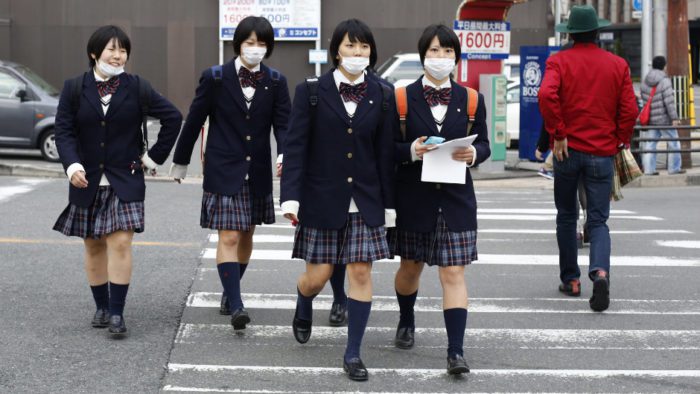
Relationship between Kouhai and Senpai
Senpai should show compassion by listening and putting himself in Kouhai's shoes, exploring his thoughts and feelings. Many have felt the relief that comes from talking to someone who is willing to listen. Senpai must have the perception that the Kouhai at certain times need help, and they must create the right conditions to talk. He needs to make himself available whenever needed.
In Japanese sports clubs, such as baseball teams, Kouhai usually perform various household tasks for Senpai including washing clothes and cleaning. Kouhai cannot participate in all club activities until he has gained some experience.
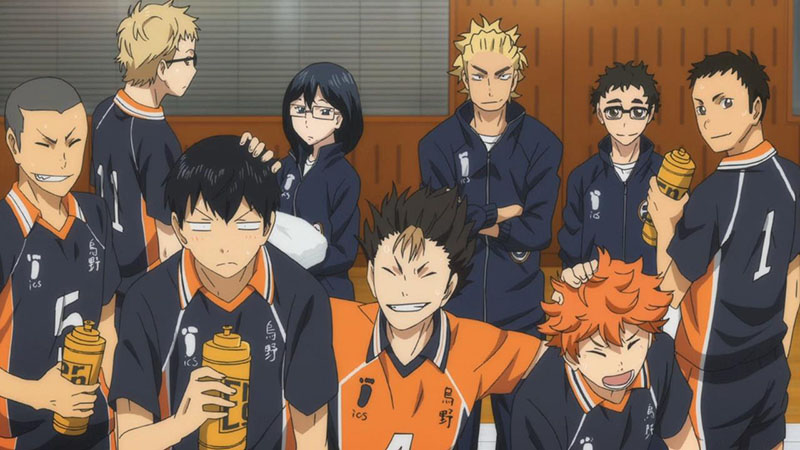
In Japanese martial arts, the term Senpai usually refers to students of the last level, who hold a black belt. They are chosen to help the sensei with younger or less experienced students.
Read also: The 10 Japanese martial arts + list
If you are used to watching doramas and anime, you may have noticed the relationship between them or noticed that sometimes students refer to older ones as Senpai. Some, upon becoming veterans, feel proud and satisfied, and do their best to help the newcomers.
Unfortunately, there are many cases where the veterans do not play their part, and act in an ignorant and despicable way, offending the Kouhai and people of lower levels, where ijime (bullying) can also occur. Hardly people like that will be called by the honorific or receive special treatment.
Read also: Ijime - Bullyng in schools in Japan

The Love Between Senpai and Kouhai
It is common for young schoolgirls to fall in love with their Senpai, or having a "Crush" on them. This even earned memes like “Notice Me Senpai” which means watch me or notice me, an expression that also emerged from anime and manga. This expression indicates the need for approval that many people have from older or superior elements.
Unlike crush, which is used for platonic love. Senpai is a level above, because we have a little bit of intimacy and we know the person. They take care of the Kouhai in a way that they end up falling in love. The fact that the Kouhai are a level below makes them have no hope of a relationship, especially when the Kouhai, then the suffering is even greater.
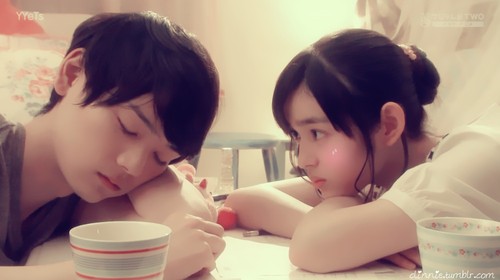
Senpai and Kouhai in the anime and manga

Seonbae and Hubae - Senpai in Korean
Seonbae [선배] comes from the same etymology as Senpai, almost a synonym. Refers to a mentor or someone who attends the same school as you, but who ranks higher as a senior than a freshman.
When "Seonbae" is applied to taekwondo, the "Koryo" form has a tread pattern that traces the character "Hanja" to "Seonbae"; in this context, the term "Seonbae" refers to a class of civic officials in ancient Korea.
Hubae [후배] is the equivalent of Kouhai, used to refer to freshmen and juniors. Typically, people in senior and junior relationships call themselves Seonbaenim [선배님] and Hubaenim [후배님], where nim is equivalent to a Korean address suffix.
We also recommend reading:
Senpai vs Kouhai - Hierarchy
This hierarchy is common in countries where the majority are Confucian, such as Japan and Korea. “Veterans have enormous social power with respect to the“ newbies ”, who are the vast majority. Social norms are ideologically justified on this occasion.
The Senpai have powerful social power over the Kouhai in Japan and Korea. Senpai have the right to discriminate against the Kouhai as a privilege, with the right to use a negative TAM expression and the right to request the expression of obedience.
In some cases, the "senior" is implicitly recognized within the group as having the right to order something from the "junior". Some even go so far as to harness that power to get freshmen to buy things, without a shred of love and empathy.
Senpai power varies depending on each club and school, in schools like “Nistai Women's Volleyball Club”, there are 300 items that lower class students must do. The fact is that freshmen have a lot more tasks than seniors.
Read also: Bukatsu - School clubs in Japan - Extracurricular activities
While the purpose of this freshman and senior hierarchy is good, unfortunately it is not fulfilled with due respect by a good number of students. Usually in this case, fledglings tend to distance themselves from a certain Senpai.
Senpai Abuses Kouhai
Of course, there are cases where the fledgling may feel shadow-stricken, hold grudges, and in the future be forced to assume the position of “senpai” in social norms. Nobody is obliged to follow the hierarchy, but it is very likely that this will negatively affect the entire chain.
Those who criticize the system feel that it is arbitrary and unfair, that Senpai are often aggressive, and that the system results in students who are shy or afraid to stand out. For example, some Kōhai fear that if they surpass their Senpai in an activity, their Senpai will lose their readiness, some even force the Kouhai to apologize.
Some take advantage of the abuse of power (power hara) to make the fledglings a slave. Usually using offensive language, forcing the freshman or subordinate to carry their luggage, do their schoolwork and even use violence.
For this reason, Japan preaches the positive side of this Senpai-Kouhai hierarchy. People are encouraged to see freshmen as “new friends” who help each other in many ways, and not regard them as inferiors or tools to use.
As mentioned, being a Senpai is a delicate and more complicated task than being a freshman Kouhai. Surely those who do not take this relationship seriously end up suffering serious consequences in the future of their life.
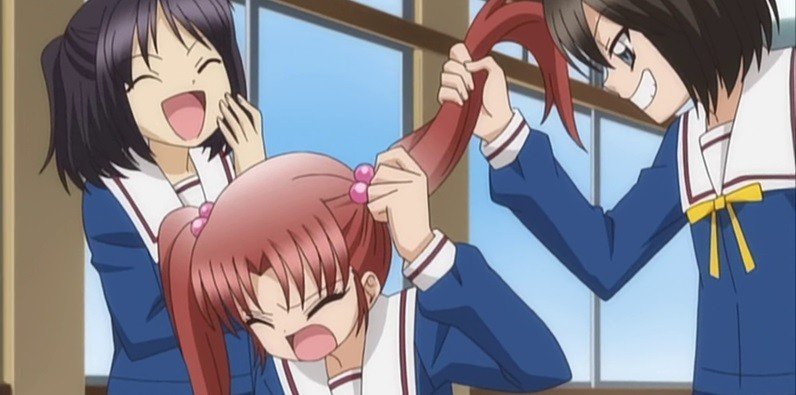
History and Origin of Senpai and Kouhai
The Senpai-Kōhai system is deeply rooted in Japanese history. Three elements had a significant impact on its development: Confucianism, the traditional Japanese family system, and the Civil Code of 1898.
Confucianism arrived from China between the 6th and 9th centuries, but the derived line of thought that brought about profound social changes in Japan was neo-Confucianism, which became the official doctrine of the Tokugawa shogunate (1603-1867).
The precepts of loyalty and filial piety dominated the Japanese at the time, as the respect for elders and ancestor worship that Chinese Confucianism taught were well accepted by the Japanese, and these influences spread into daily life.
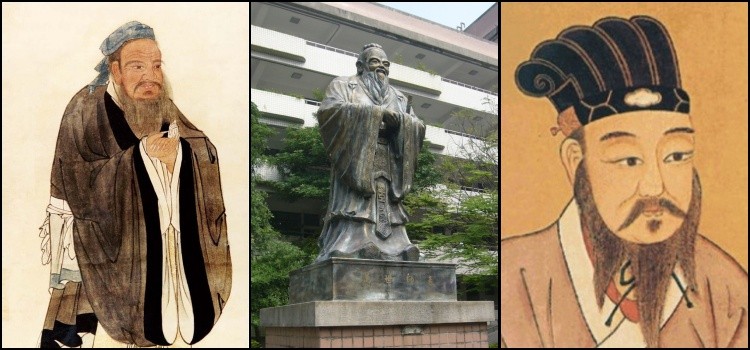
The Japanese family system (家 ie) was also regulated by Confucian codes of conduct and had an influence on the establishment of the senpai-kōhai relationship. In this family system, the father, as the male head, had absolute power over the family and the eldest son inherited the family property.
The father had power because he was the one who received the education and was seen as having superior ethical knowledge. Since reverence for superiors was considered a virtue in Japanese society, the wife and children had to obey it.
Besides the hereditary system, only the oldest son could receive the father's belongings, and neither the oldest daughter nor the younger sons received anything from him.
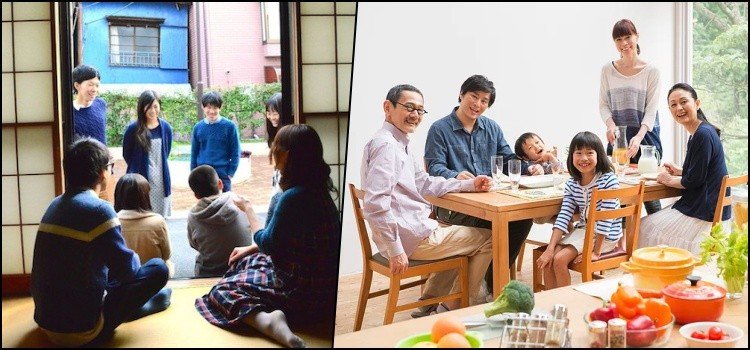
The last factor that influenced the Senpai-kōhai system was the Civil Code of 1898, which strengthened seniority privilege rules and reinforced the traditional family system, giving clear definitions of hierarchical values in the family.
This was called Koshusei [戸主制] which means head of household system, in which the head of the household had the right to rule over his family and the eldest son inherited this position. These statutes were abolished in 1947 after Japan's surrender at the end of World War II. However, these ideals remained during the following years as a psychological influence on Japanese society.
Senpai and Kouhai Anime
In addition to those mentioned above, we want to end the article with a list of anime that show the relationship between Senpai and Kouhai:
Seishun Buta Yarou wa Bunny Girl Senpai no Yume wo Minai
Abnormal things due to teenage problems happens frequently in Sakuta Azusagawa's life, these events are called Puberty Syndrome.
Her life changes when Mai Sakurajima, a famous actress, her Senpai in High School, starts dressing up as the "Play Boy Bunny" due to Puberty Syndrome.
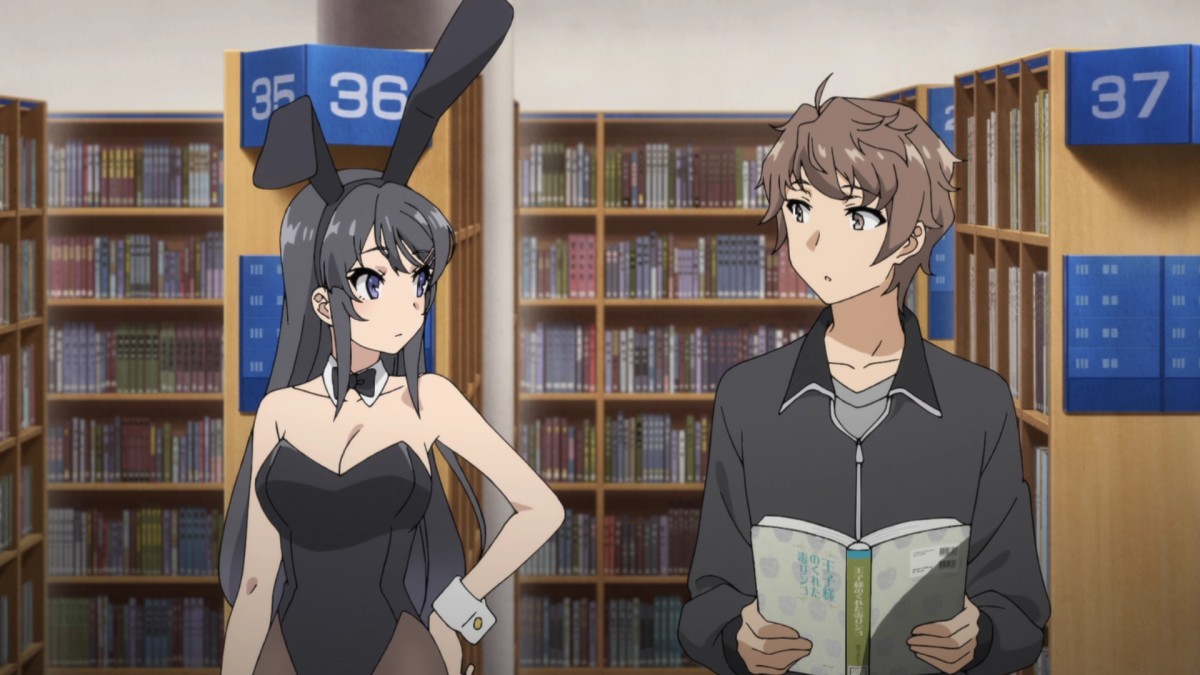
Ijiranaide, Nagatoro-san
This anime tells the story of a girl named Nagatoro who is Kouhai of an extremely shy and antisocial student, but who bullies him, not a good example of Kouhai.
This anime is very painful, the girl is extremely sadistic and temperamental, but for some reason this anime is very successful and appears to be a lot of fun.
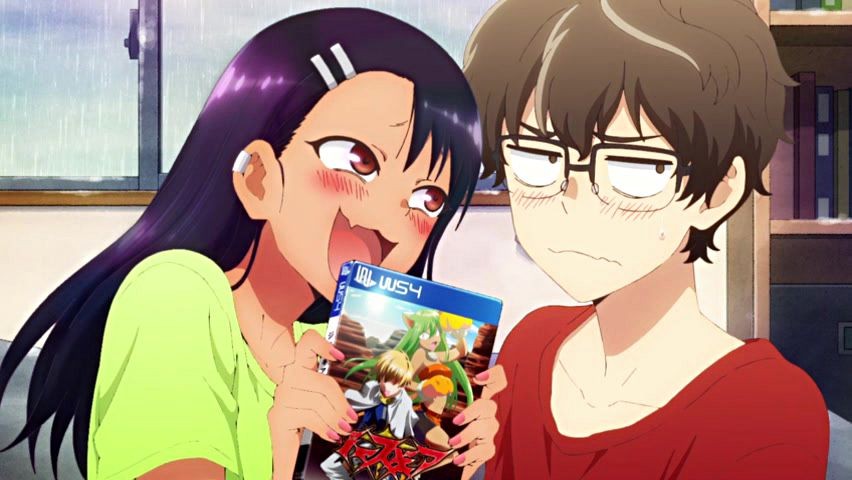
List of Anime about Senpai and Kouhai
- Clannad;
- Yagate kimi ni naru;
- Ijiranaide, nagatoro san
- Uzaki-chan wo asobitai
- Seitokaichou ni Chuukoku
- Ganbare, Douki-chan
- Magical Sempai
Videos related to Senpai and Kouhai
To finish the article, we will leave some videos related to the words investigated in this article. If you liked the article, leave your comments and share it with your friends.







